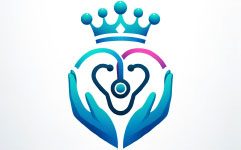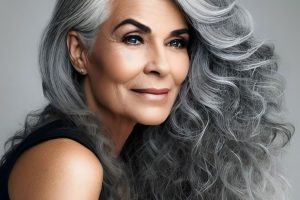Understanding the Emotional Toll of Hair Loss: A Comprehensive Guide for Cosmetologists
Cosmetologists are often the unsung therapists of the beauty industry. They not only help individuals look their best but also often provide a sympathetic ear to many personal concerns, including the emotionally charged issue of hair loss. As many as 80 million Americans face hereditary hair loss, and a plethora of studies indicate that hair loss can have a significant impact on self-esteem and confidence. This article delves into the emotional aspects of hair loss and outlines how cosmetologists can approach this delicate issue, armed with knowledge and empathy.

The Emotional Landscape of Hair Loss
The Impact on Self-Esteem and Confidence
Hair is often seen as a critical element of a person’s identity. Consequently, its loss can significantly affect self-esteem and confidence. Some common emotional impacts include:
- Depression: The loss of hair can lead to symptoms of depression, affecting overall happiness and life satisfaction.
- Anxiety: Anxiety levels may increase, primarily due to the societal emphasis on appearance.
- Social Withdrawal: Many people with hair loss avoid social gatherings or experience difficulty forming new relationships.
Gender-Specific Emotional Toll
- Men: Hair loss is commonly associated with aging in men, and its early onset can lead to a diminished sense of virility and self-worth.
- Women: For women, hair is often linked to femininity and beauty. Hair loss can, therefore, lead to more severe emotional stress compared to men.
The Cosmetologist as an Emotional Resource
As a cosmetologist, your salon chair is a sanctuary where clients often open up about personal issues, including hair loss. Here are some steps you can take to guide them emotionally:
Open Up the Conversation
People may be reluctant to talk about their hair loss, fearing judgment or ridicule. Create a supportive environment where they feel comfortable discussing their concerns. Simple phrases like, “I’ve noticed your hair has been thinning lately, is this something you’re concerned about?” can open doors.
Be Informed
Stay up-to-date on the various types of hair loss and their treatments. This knowledge will allow you to identify potentially concerning types of hair loss and recommend that clients consult healthcare providers when appropriate.
Define the Scope
It’s important to remember that as a cosmetologist, medical and surgical treatments are outside your purview. Your role is advisory; you can guide clients to appropriate resources but should not attempt to replace medical advice.
Navigating the Emotional Minefield: Do’s and Don’ts
Do’s:
- Do Listen Actively: Sometimes, all a client needs is a listening ear.
- Do Encourage Professional Help: If a client seems severely impacted, suggest they see a mental health professional.
- Do Validate Their Feelings: Recognition of their emotional struggle can be comforting.
Don’ts:
- Don’t Diagnose: You’re not a medical professional; steer clear of giving medical advice.
- Don’t Downplay: Avoid making light of the issue with phrases like “It’s just hair.”
- Don’t Oversell: Be cautious about promoting hair products that claim to reverse hair loss unless they are FDA-approved for that purpose.
Conclusion
Hair loss is more than a cosmetic issue; it carries emotional weight that you, as a cosmetologist, are uniquely positioned to address. With your finger on the pulse of the latest in hair care, an understanding of your scope of practice, and the soft skills needed to navigate sensitive topics, you can become an invaluable resource for your clients. By being well-versed in the emotional aspects of hair loss, you can offer a holistic approach that serves not just your clients’ appearances but also their emotional well-being.






